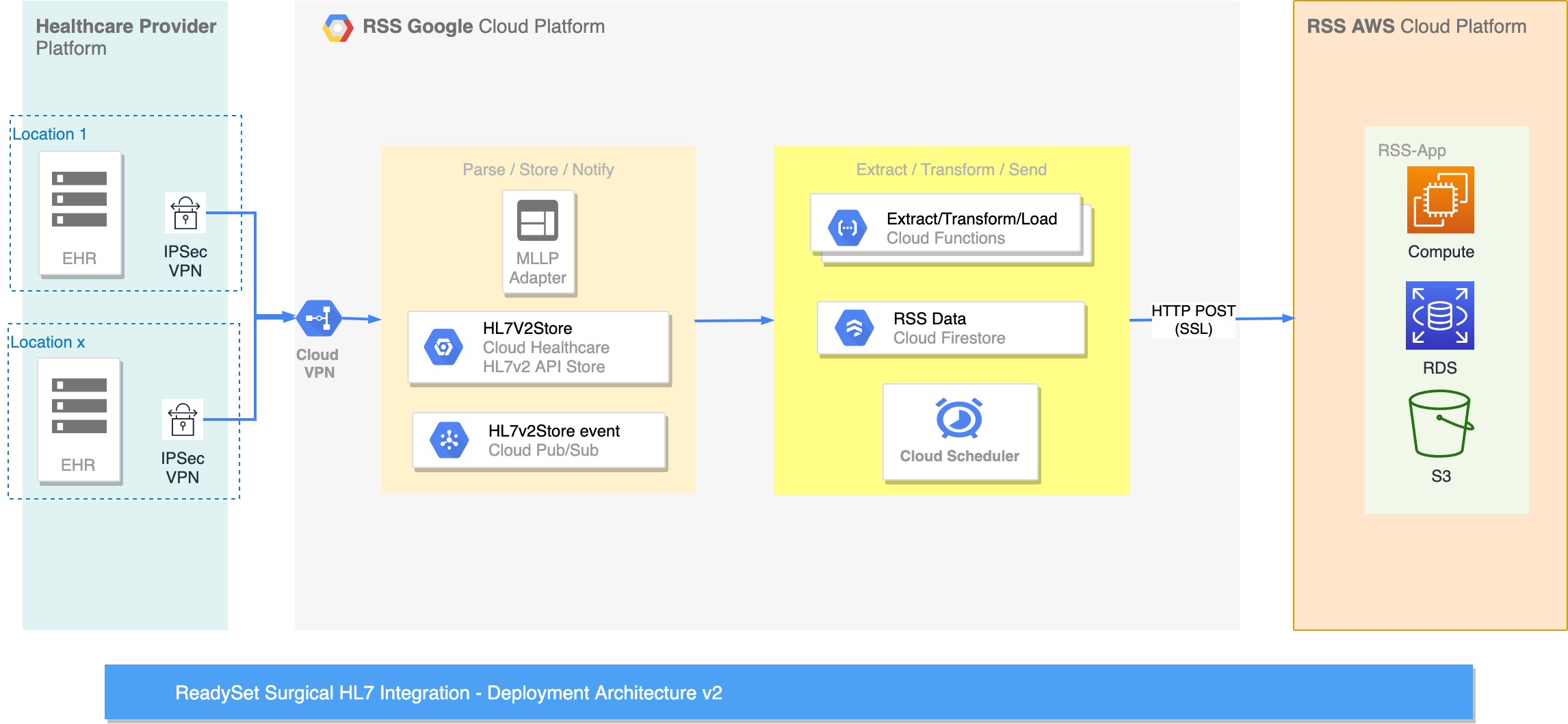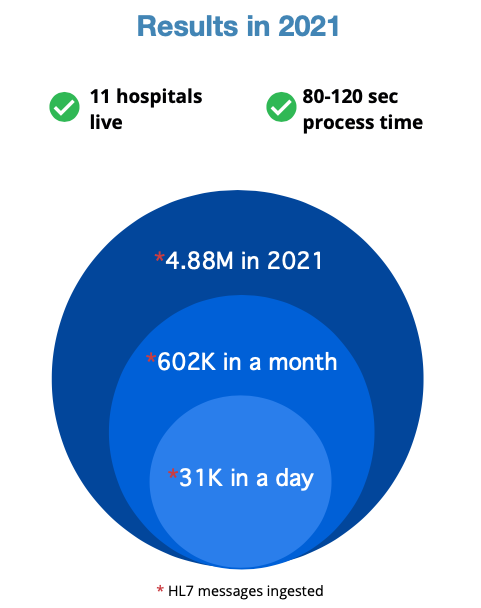Case Study – HL7 message integration for ReadySet
Connect & ingest surgical schedule and inventory data from varying EHR/EMR systems electronically
Case Study – HL7 message integration for ReadySet
Connect & ingest surgical schedule and inventory data from varying EHR/EMR systems electronically

Profile
ReadySet Surgical offers a cloud-based Software-as-a-Service (SaaS) platform for effective coordination of surgical vendor inventory. Easy to install and intuitive to use. The software simplifies the vendor inventory process, connecting all members of the surgical team through comprehensive, real-time communications.
Designed to improve surgical workflow, ReadySet Surgical’s software closes the communication gaps that have traditionally existed between hospitals and medical device reps. The application platform, which is easy to install and integrate, makes it easier for the hospital to get proactive about Vendor Inventory Management. ReadySet Surgical’s SaaS solution is a HIPAA compliant and EMR compatible mobile and web application.
Challenge
The surgical scheduling data from the healthcare system to the ReadySet application was received in a CSV file format via FTP and in a third-party flat file format. Some of the challenges were:
Multi-step data upload process
Handle all security issues with the data upload
Large data volume during on boarding
Case update lag of 24 to 36 hours
Increased time to add/modify data
Solution
Based on ReadySet requirements and challenges Dinoct architect and developers designed a cloud-based HL7 integration engine. Google Cloud Platform (GCP) was selected to provide the reliability and redundancy required by RSS. The solution is designed as a high-available fault tolerance architecture utilizing GCP’s network, compute, storage and other core services, dedicated multiple GCP accounts for development, stage and production environments, GCP HIPAA eligible services and resources, SSL/SSH/VPN based access for data security in transit, multi-layered Identity and Access Management (IAM) groups.
As the diagram below shows, through the IP Security (IPsec) tunnel the care centers reach the Minimal Lower Layer Protocol (MLLP) adapter hosted in Google Kubernetes Engine (GKE) and the MLLP adapter receives HL7 messages and validates HL7 format. The invalid messages are discarded and the valid messages are stored into the Health Level Seven International Version 2 (HL7 V2) store and after transforming the message it is sent to the ReadySet server with business required fields.

The HL7 Integration Engine components used the GCP, other services listed below.
Cloud VPN: For secure connection between healthcare provider and the HL7 Integration Engine hosted in GCP. Separate IPsec VPN tunnels are used for each healthcare provider.
Minimal Lower Layer Protocol (MLLP) Adapter: This component receives the HL7v2 message from the healthcare provider system over the TCP connection and ingests the message into the HL7v2 store.
Google Kubernetes Engine (GKE) : The MLLP adapter is deployed in GKE for high availability and fault tolerance.
Healthcare API HL7v2 DataStore: The Cloud Healthcare API parses and validates the messages as they are ingested into the HL7v2 data store.
Cloud Pub/Sub: Messaging service for ingestion into HL7v2Store.. Pub/Sub triggers the Cloud Function for data transformation.
Cloud Function: Platform for creating functions that respond to cloud events. First function runs parallel and stores the transformed data into the Firestore and the second function sends the data per the sequence to the backend.
Firestore: Cloud-native document database used to store processed SIU data and necessary mappings and dynamic changes.
Cloud Scheduler: Cron job to continuously fetch a batch of messages and send serially to ReadySet.
Cloud Build API: This service uses GitLab CICD to deploy Google services.
Cloud Logging: Use the Logging service, to store, process and analyze custom and system event logs for troubleshooting and continuous improvement decisions.
Benefits
Implementing Dinoct’s HL7 Integration Engine helped ReadySet integrate EHR/EMR systems from 100s of customers and update surgical case data in near-real time. Some of the key benefits are:
Near Real Time update of the surgical case details to RSS application
Enhanced interoperability eliminated the possibility of errors or incomplete data
Enhanced the privacy and security of health data and meet HIPAA compliance
Greater automation and streamlined business processes reduced manual work and minimized human error
Maintain 100% data accuracy via automation
Business scalability was possible with the ability to make changes faster
Easy data-mapping with workflow set up benefitted data collection, processing, and quality assurance
Highly scalable integration engine powered by massively scalable Google Cloud network, compute and storage services
Results
With the successful HL7 integration, RSS saw the following results:

Testimonials
“Dinoct’s fully hosted and managed HL7 integration solution has the flexibility to scale and incorporate changes as business demands at a reasonable cost. Its developers worked directly with the integration team to fine tune the capability and capacity. Their team and their software solutions have been key in helping us to support our healthcare clients. We had a very positive experience working with Dinoct Solutions.”
Keerthi Kanubaddi
CEO, ReadySet Surgical
“Dinoct has handled our HL7 interface development and support and we’ve been very pleased with the interface engine software as well as their customer service and technical expertise. We now have production interfaces with a number of hospitals that help us retain our customers’ business.”
Srinivas Raghavan
CTO, ReadySet Surgical